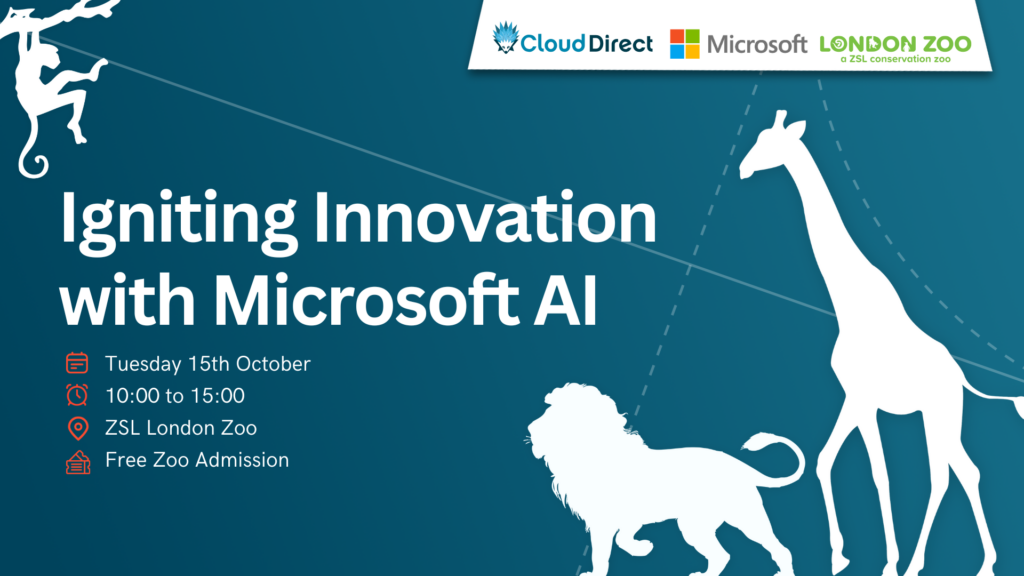
In an era marked by technological advancement, AI has emerged as a powerful tool that takes us beyond our everyday ways of working. Quite often when we think of AI, its associated with big-budget corporations that are throwing enormous resources into innovation and improved efficiencies.
But the impact of AI has been making waves elsewhere – and for good reason.
In the nonprofit sector, which is often tasked with making the biggest impact with limited resources, AI is quickly gaining momentum as a force for good, and is starting to play a pivotal role in helping nonprofits achieve their mission and address pressing global challenges.
AI for Optimisation and Efficiency
One of the first things you might think about when it comes to AI is ‘how can I use it in my job role to make it easier’. There’s no harm in thinking about how AI can make your job easier, but it’s also important to look at the bigger picture for your nonprofit, and consider how it can be used to streamline processes and make them more efficient – so there’s more time for everyone to focus on the mission.
There are a few different ways in which AI can help optimise your processes:
- AI-driven chatbots can help with internal queries, routine questions and support requests, which will free up teams to focus on more strategic tasks that align with their mission.
- Internal time-consuming and repetitive tasks can be moved into automated workflows with AI – so the team have more time to focus on more impactful tasks.
- Automated expense tracking and budgeting processes will allow your finance team to analyse spending patterns, identify cost-savings, and better adhere to budgets.
- Using AI to analyse document content will make it easier for your team to find relevant information quickly.
- For your volunteer teams, AI can be used to analyse their schedules to automatically coordinate internal meetings and their volunteer activities.
…and that’s just the tip of the iceberg.
AI in Data Analytics and Insights
As a nonprofit, your data can be your biggest asset. Knowing how to leverage this data with AI is essential to ensuring that you can evaluate the great work that you are doing in your communities – and do more of it. From improved decision-making to impact measurement and donor engagement, your data’s power is far-reaching.
By using AI for data analytics and insights, you can…
- Track progress data on your programs, so that you can monitor their performance and outcomes to adjust the programs for better results.
- Assess historical data and identify areas where resources are most needed, ensuring sufficient use of your funds and volunteers.
- Forecast future needs in their communities with predictive analytics, helping in proactive decision-making and resource allocation.
- Assess the societal impact of nonprofit initiatives by measuring efforts and outcomes to ensure continued success in their programs.
Using AI-driven data analytics is a robust way for nonprofits to reinforce the good work that they are doing, and to continue making a positive impact on the communities they serve. By better understanding where your team’s time is making the biggest difference, what services are under-resourced or which sections of your community aren’t being served adequately, you will only become a better, more impactful, nonprofit.
AI in Fundraising and Donor Engagement
Nonprofits rely on donors to ensure that they have the funds to continue the great work that they are doing – but now, more than ever before, funds are limited. Nonprofits need to find ways of using technology to enhance their donor stewardship.
There are plenty of ways in which AI can help with donor engagement and fundraising:
- AI enables nonprofits to analyse donor behaviour, preferences and giving patterns. With this information, organisations can optimise fundraising strategies, improve donor engagement, and enhance the overall donor experience.
- Nonprofits can use AI and data tools to identify specific target donor groups and create more tailored services and communications, such as personalised thank you messages and acknowledgements.
- In combination with technologies like blockchain, AI can allow for transparent and secure donation transactions which ensure that donors can track how their contributions are being used and reinforces trust in the fundraising process.
- AI can be employed to analyse your data and create dynamic pricing models. By analysing historical data and donor behaviour, AI can suggest personalised donor amounts, increasing the likelihood of your donor commitments.
Improvements in donor stewardship are quite often top of the list of areas that nonprofits want to focus on. AI, used in the right way, can be instrumental in ensuring that nonprofits have an effective donor stewardship program – one that is not only more efficient, but also drives greater levels of donation.
Ethical Considerations for Responsible AI Adoption
The ethical considerations surrounding AI in this sector differ significantly from those in the for-profit space. Stakeholders have different motivations in the nonprofit and for-profit sectors and while both face common challenges, the former operates within a unique landscape that requires some extra consideration.
- AI systems are only as fair as the data they use. Nonprofits should ensure that their data is inclusive and representative to avoid bias, inequality, and discrimination.
- As many nonprofits will be dealing with sensitive personal data from their communities, it’s critical that data protection controls are documented and followed meticulously. They must also ensure that they are operating in a safe, secure and enclosed environment that does not share their data with third-party platforms.
- AI is fast-changing, and nonprofits should ensure that they are staying informed with the evolving regulatory landscape. Have conversations with experts, attend events and communicate changes internally to help you stay compliant.
- Address the common fears that AI and automation can replace jobs by offering staff upskilling and retraining opportunities, as well as being clear and forthcoming in your internal communications concerning the changes.
There are a multitude of ways in which nonprofits can start to use AI technology as a force for good – from optimising processes by tapping into data analytics and insights, to enhancing fundraising drives and donor engagement levels. The possibilities are endless with data and AI tools, and they aren’t reserved for those big-budget corporations. These opportunities are well within reach for your nonprofit, and we can help you on your way.
Are you ready to start adopting AI for your nonprofit?
At Cloud Direct, we understand that using data and AI can be crucial to the success of your nonprofit’s mission. As a leading UK Microsoft Solutions Partner and Azure Expert Managed Service Provider, we can assist you in your digital transformation journey and provide access to Microsoft nonprofit resources and funding.
From Azure migration to building a sound data strategy and implementing key Microsoft AI services such as OpenAI, Copilot, Power BI and more, our experts can help kickstart your data and AI journey in the cloud. Get in touch today to find out more, or book a free 1:1 Data and AI Innovation Workshop for a tailored assessment of your AI potential.




